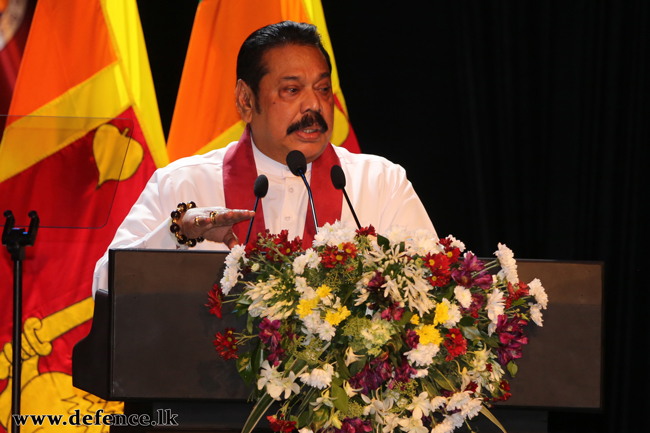
Writing for the diplomat Tamil journalist, J.S Tissainayagam, rebukes the claim that Tamil’s are “moving away from regional Tamil-nationalist parties – focused on ethnic rights, wartime accountability, and power-sharing” and towards groups focused on “economic development”. Instead, he argues that contrary to this narrative, Tamil demands for rights and justice remains just as widespread and resolute as ever.
Tamil politics since the end of the armed conflict
In contextualising the post-war political landscape, Tissainayagam, notes that despite more than a decade passing since the end of the armed conflict, “the political roots” of Tamils discontent and concerns of war crimes has not been addressed.
Tamils have attempted to use parliamentary methods to further “advance accountability for wartime atrocities and guarantee at least minimal power-sharing”. However, Sri Lanka has long suffered a history of “Sinhala majoritarian politics” which has stood in opposition to these goals.
In pursuing these goals Tamils persistently voted “en bloc a regional Tamil-nationalist party from the country’s north and east”, the traditional Tamil homeland. However, the party they threw their weight behind, the Tamil National Alliance, has been accused of “prioritising collaboration with the government over pushing accountability or Tamil rights, and has a poor record of fulfilling election promises”.
2020 parliamentary Election
In this last parliamentary election, there was a notable shift as in Jaffna, the vote was split among three nationalist parties with the TNA securing only 10 seats of the 16 it won in the August 2015 parliamentary elections. The Tamil National People’s Front (TNPF) gained two seats, and the Tamil Makkal Thesiya Kootani (TMK) secured one.
A further distinction this election brought was that in the North-East, there was increased support for parties with ties to the central government. The Sri Lankan Freedom Party (SLFP), a party with integral links to the stridently Sinhala-nationalist government of President Gotabaya Rajapaksa, was able to secure a seat in Jaffna. Similarly, former paramilitary groups aligned with the Rajapaksa’s, such as the Eelam People’s Democratic Party (EPDP) and Tamil Makkal Viduthalai Puligal (TMVP) also gained addition seats. With the EPDP gaining two seats in the north and the TMVP, from the Batticaloa District in the East also securing two seats.
A shift to economic development?
One explanation offered for such a shift is that politicians with ties to governing parties, such as Angajan Ramanathan, the SLFP’s Jaffna District candidate, campaigned on reducing “unemployment and poverty”, messages of economic development.
However, as Tissainayagam notes, that “a single seat for the SLFP and two for the EPDP in the North is not a wholesale repudiation of Tamil nationalism”. Instead, he notes a continued pattern, with parties aligned with the government gaining seats in the North-East. For example in 2015, the United National Front for Good Governance (UNFGG) was able to secure a single parliamentarian.
Similarly, the EPDP also holds a “long and unsavoury association with Jaffna”, Tissainayagam notes. They had won a seat in the 2015 election and have consistently won at least one seat in Jaffna in every parliamentary election since 1994. Tissainayagam further states that the “two seats won by the pro-government TMVP in Batticaloa is not new”.
Political patronage
The issue of political patronage is not new, Tissainayagam reminds us. In 2017, then Prime Minister, Ranil Wickremesinghe pledged that “Jaffna will return to its original status and become an economic centre”, however little was achieved.
Tissainayagam further maintains “
But economic development or human rights need not be a binary choice in general. In 2015 Tamils voted for a pro-government party, they were promised piece-meal reforms but continued to agitate for their rights.
Some of the largest public demonstrations against disappearances, political prisoners, and land grabs were achieved whilst the UNFGG was in office. These protests continued uninterrupted from “February 2017 until the COVID-19 pandemic foreclosed on public assemblies.
Conclusion
In concluding his piece, Tissainayagam notes that whilst “economic development and human rights can go hand in hand, there is little prospect of that happening in Sri Lanka”.
Instead, he states;
"With the Tamil struggle for rights, power-sharing and justice expected to go on, a crackdown is inevitable. When that happens, human rights activists and the Tamil population will hopefully get the backing of the Tamil-nationalist parties and not the excuse of “working with President Rajapaksa” to stand by passively as atrocities mount. They should oppose coercion, protect the people, and collectively strive to fulfil Tamil aspirations".
Read Tissainayagam’s full piece here.
We need your support
Sri Lanka is one of the most dangerous places in the world to be a journalist. Tamil journalists are particularly at threat, with at least 41 media workers known to have been killed by the Sri Lankan state or its paramilitaries during and after the armed conflict.
Despite the risks, our team on the ground remain committed to providing detailed and accurate reporting of developments in the Tamil homeland, across the island and around the world, as well as providing expert analysis and insight from the Tamil point of view
We need your support in keeping our journalism going. Support our work today.
For more ways to donate visit https://donate.tamilguardian.com.

